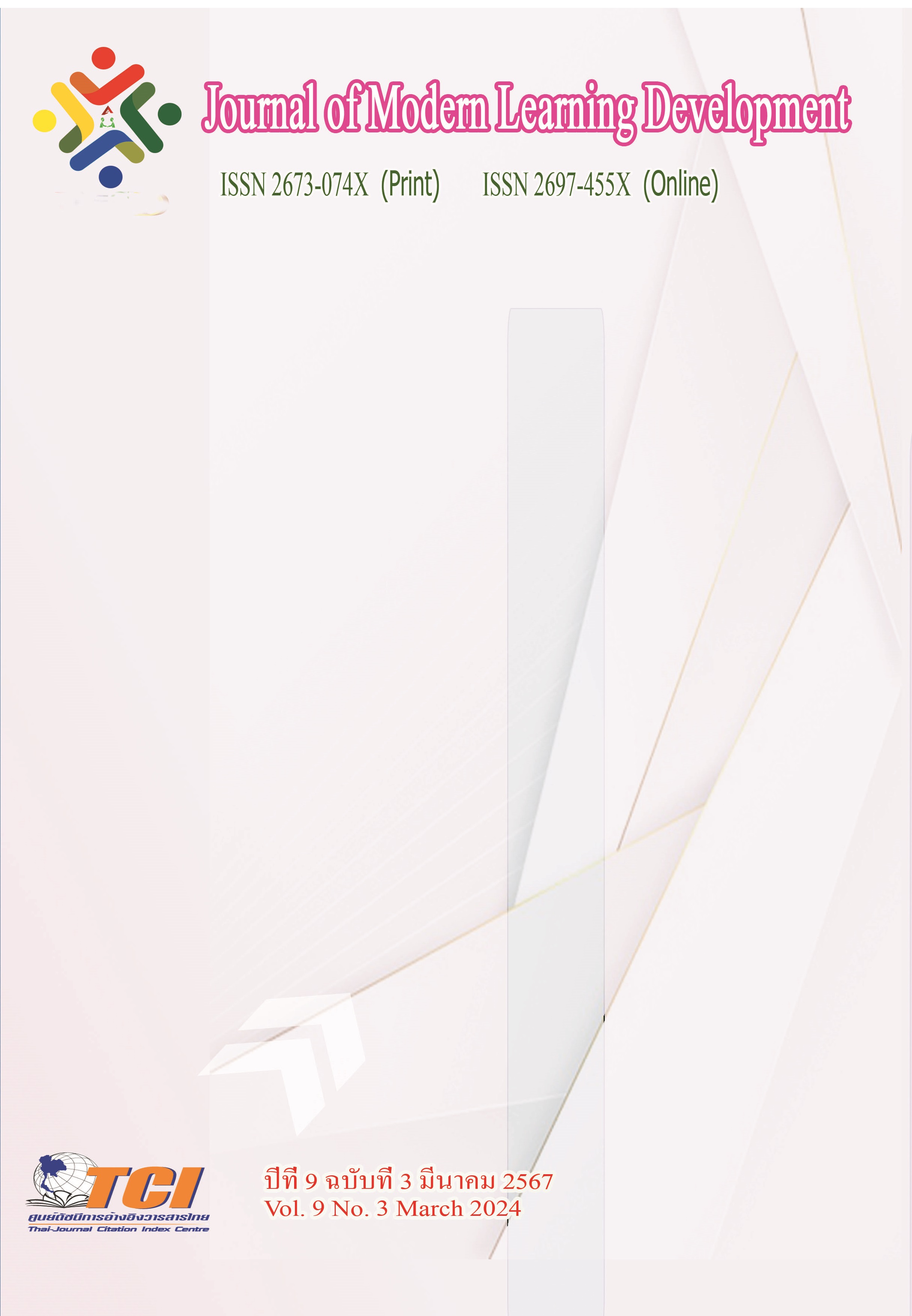Practical Exercises for Yangqin National Higher Education Entrance in Music, The People’s Republic of China
Main Article Content
Abstract
This study aimed to To create Practical Exercises for Yangqin National Higher Education Entrance in Music, The people’s republic of China. This research was conducted qualitatively, Collect data by interview three experts.
The research findings found that experts suggestion was key skills during the college entrance examination for Yangqin players include candidates' understanding of music, expression, state of performance, and integrity of performance. Shortcomings that can lead to point deductions include poor understanding and expression of music, poor playing, inability to complete selected music, inappropriate clothing, insufficient stage performance experience, and stuttering or mispronunciation caused by unfamiliarity with the music. Good sound is a fundamental requirement for the Yangqin in exams, followed by the tension of music, rich expressions, appropriate body movements, and unique understanding and processing of music as bonus items. Personal attire, conversation, and the first 30 seconds of playing are also crucial for building a good first impression with the judges during the exam.
Article Details
References
Chen, P. Y. (2017). Twelve girls’ band and the representation of Chinese traditional
musical instruments through virtual perspectives/Chen Pei Ying, [doctoral
dissertation]. University of malaya.
Li, X. Y. (2001). Fifty years of development of Chinese yangqin art. Chinese
musicology. 17 (01), 95-103.
Touchin, H. R. (1973). History of a dulcimer. Early music. 1 (4), 249–249.
Zhang, C. L. (2005). Textual research on the historical data of yangqin in "qing bai lei
chao". Journal of Nanjing academy of arts. 28 (04), 45-49.
Zhou, J. B. (2010). Dulcimer on the silk road. Instruments. 39 (01), 58-61.
Zhu, X. X. (1994). Wen Jian Ou Lu. shanghai bookstore press.


